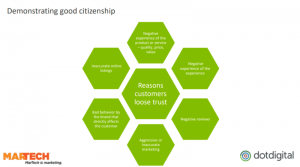Google Focuses On Niche Local Events To Gain More Data
Google sees local services as a path to peer-to-peer conversations to gain more data about people, places and things. Some think the company has added a social layer to local services like Google My Business and Google Maps.
At least that’s Mike Blumenthal’s take. Blumenthal, the proprietor at Understanding Google My Business & Local Search, a blog that focuses on local and businesses, said it’s all about the data. Focusing on local just gives them much more.
To back his hypothesis, he points to some recent changes such as Google adding the ability for people to follow businesses on Maps, and giving businesses the ability to respond to followers with special deal.
Google also launched a way to earn local guides points by sharing recommendations of places people love. Bonus points are given by sharing descriptions of list themes, and notes and tips.
The company also created localized social interactions through a platform called Shoelace, which focuses on local events. Blumenthal said it’s not so much about a peer-to-peer networks as it is about building their local knowledge graph.
“Some of the projects will fail and some will succeed, but it’s another way for Google to generate data around identities,” he said. “I see Shoelace as part of their ongoing strategy in the hyperlocal space. It’s not a Facebook killer, but a totally different approach to local and P2P interactions.”
Blumenthal said Google throws a bunch of stuff at the wall and some of it sticks. The stuff that sticks they keep and the stuff that doesn’t they discard. “That’s just how they do business,” he said. “Life is an experiment to them.”
Shoelace, Google’s latest take on a social network focused on events, could become a stepping stone to something else, but the focus remains on data. And lots of it.
“You will see an ongoing continued effort in segments of the local space to generate more data through P2P conversations,” he said. “It really doesn’t matter to them because they believe so strongly in this fail early and fail often strategy.”
Google will customize social experience around different entities to gain more data, Blumenthal predicts.
(11)





